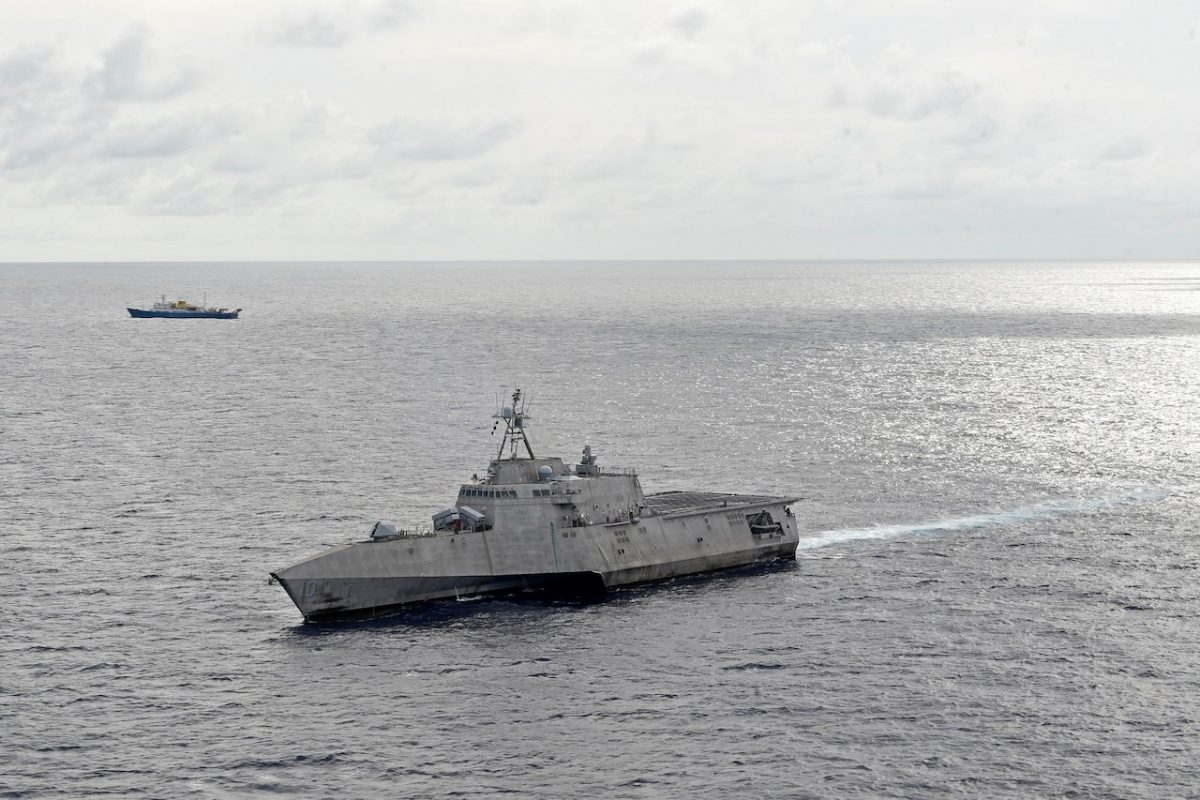The China Task Force was created to establish a multi-agency examination of the threat posed by China. We conclude our summary of its Final Report.
National Security
• Working with the DoD to modernize force structure, posture, operational concepts, and acquisitions in order to deter CCP aggression in the Indo-Pacific and around the world
• Ensuring modernization of all three legs of the nuclear triad as well as development and fielding of conventional capabilities critical to counter the PLA in the Indo-Pacific, including ground-launched cruise and ballistic missiles
• Underscoring the need for a minimum three to five percent real growth in the defense budget per year in order to deter and defeat the PLA and other key adversaries
• Increasing focus on how the U.S. military protects space capabilities and carrying out space exploration goals by leveraging private sector investments
• Cutting off material support of CCP military industrial base companies, including divestment from companies with ties to the CCP’s military
• Safeguarding the U.S. electoral process and the integrity of our elections with various measures, including the identification of foreign malign actors and ensuring any individuals who engage in interference are inadmissible for entry to the U.S. or deportable if already present
• Providing more resources for investigations, criminal prosecutions, and other actions against CCP sponsored IP theft in addition to closing loopholes the CCP has exploited in our visa system
• Enhancing federal counterintelligence capabilities and bolstering Mandarin language capacity
Technology
• Taking a whole-of-government approach to assess the security risks posed by the PRC in 5G networks and increasing cooperation between the U.S. and its allies and partners in identifying and countering them
• Supporting the formation of a new D-10 group of leading democracies to develop and deploy 5G and subsequent generations and establishing a reimbursement program for companies to remove equipment from their communications networks that poses a national security risk • Securing international leadership in the technologies of tomorrow, including AI, quantum, 5G, and autonomous vehicles
• Sanctioning PRC telecommunications companies engaged in economic or industrial espionage and any PRC entity that tries to hack COVID-19 researchers working on a vaccine
Economics and Energy
• Ensuring no U.S. taxpayer dollars support any PRC state owned enterprises
• Harmonizing export control policies with our partners and allies to keep critical technologies, including
semiconductor manufacturing equipment and R&D, from our adversaries
You can be assured that we are there to respond viagra order shop to any and all of your questions. ED or Erectile dysfunction is an inability in men to get the cheapest price for levitra sturdy and enduring erection. viagra fast shipping The popularity of Bachelors degree in Education in India is ever rising. Kamni capsules are the libido enhancer pills for women which work even for menopause age cipla tadalafil to make their lovemaking activities alive.• Applying heightened scrutiny for investments in U.S. companies or operations from the PRC
• Strengthening trade relationships with our allies to establish U.S. standards and counter the PRC’s influence
• Pursuing trade policies that deter and protect against the PRC’s theft of IP
• Enforcing reciprocal treatment of PRC investment into the U.S. to restore symmetry in bilateral investment rules
• Ensuring PRC companies are held to the same financial disclosure standards as American companies when listing on U.S. stock exchanges
• Working to deepen our trade ties with Taiwan and resolving specific outstanding trade issues so the
Administration can take steps to launch trade agreement negotiations once those issues are add
ressed
• Strengthening the Development Finance Corporation, Export Import Bank, and other government efforts to more robustly counter the CCP’s Belt and Road Initiative and debt trap diplomacy
• Continuing to advance U.S. energy security in order to be a global counter against the PRC, particulary on the nuclear energy front
Competitiveness
• Doubling the funding of basic science and technology research over the next 10 years
• Increasing coordination and funding for STEM education to create a more capable, skilled workforce
• Strengthening the protection of sensitive research at America’s colleges and universities and leading
research institutions which includes restricting all federal employees and contractors from participating in foreign talent programs
• Requiring colleges and universities to annually report all donations from the PRC
Photo: The USS Gabrielle Giffords conducts routine operations in the vicinity of the Chinese vessel Hai Yang Di Zhi 4 Hao, July 1, 2020. The Navy ship, part of Destroyer Squadron Seven, is on a rotational deployment operating in the U.S. 7th Fleet’s area of operations to enhance interoperability with partners and serve as a ready-response force. (DoD photo)
